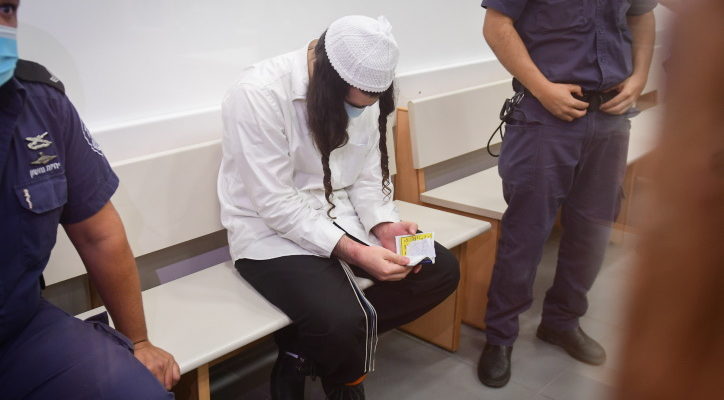“His actions were carefully planned. This is not a spontaneous event but out of a racist extremist ideology,” Justice Ruth Lorch said.
By David Isaac, World Israel News
Amiram Ben Uliel received three life sentences from the Lod District Court on Monday. In addition, the court handed 20 more years for two murder attempts.
Ben Uliel had been found guilty on May 18 of three counts of murder in the July 2015 arson attack on a home in the Arab village of Kfar Duma, which killed the Dawabsha family, two parents and an 18-month-old baby.
“The defendant will face judgment today for the serious acts he committed. His actions were carefully planned. This is not a spontaneous event but out of a racist extremist ideology,” Justice Ruth Lorch said, head of the three-judge panel which tried the case.
Shouts filled the courtroom at the end of the trial. Ben-Oliel’s wife shouted at the judges as they left the chamber, “You are the murderers.” Members of the victim’s family shouted, “You are a family of murderers, be ashamed.”
Ben Uliel’s attorneys say they will appeal to the Supreme Court. They say his confession was given after torture by Israel’s internal security service, the Shabak. The court did dismiss some of his confessions but not ones given 36 hours after the Shabak’s “enhanced interrogations’. The court determined those confessions were given freely.
During the May judgment, one of Ben Uliel’s attorneys, Shmuel Zangi Meidad, director of the Honenu legal foundation, said “It’s a dark day for the State of Israel.”
“This judgment is worthy of the third world and of regimes that were part of the world that we hoped had passed from it 100 years ago,” he said.
“Today a court in Israel lent a hand to condemning a man whose innocence cries to the heavens,” Meidad said.
“We believed that the State of Israel values human rights, that a citizen who’s been tortured in the harshest ways in the cellars of Shabak until he was forced to confess for a crime he didn’t do would not be condemned on the basis of such admissions,” he said.





